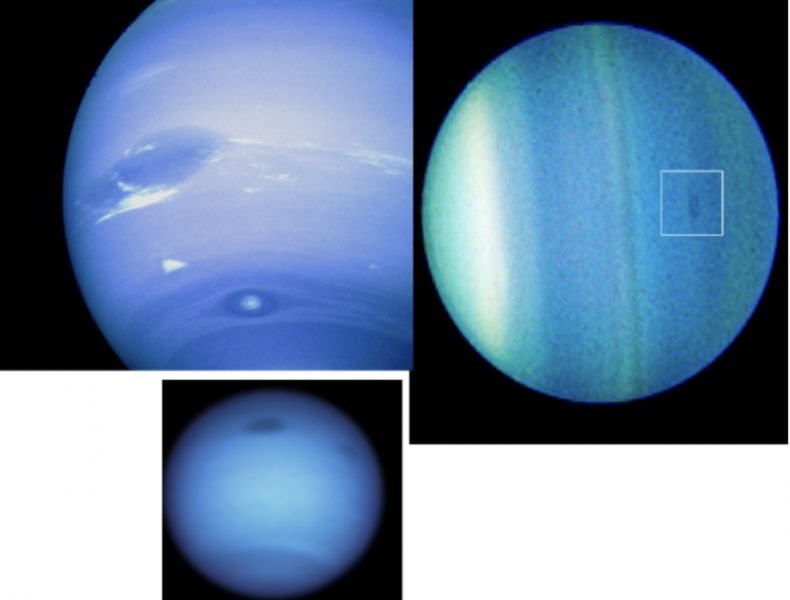
Summary of Project – POSITION CLOSED
Dr. Shawn Brueshaber (ME-EM) is seeking applications for 1 PhD student interested in researching the fluid dynamics of Uranus’s and Neptune’s atmospheres starting as early as Spring 2024 if the right candidate is found. Uranus and Neptune, the ‘Ice-Giants,’ are the least explored planets of our Solar System yet thought to be one of the most common types of planets in the Galaxy. The National Academies has recently identified Uranus as the highest priority destination for a new “flagship” class spacecraft mission. Atmospheric science will undoubtedly be a major component of such a mission. The atmospheres of the Ice Giants are quite unlike those of Earth and similar ‘terrestrial’ planets (Venus, Mars, and the moon, Titan), and also unlike those of its larger cousins, the Gas-Giants (Jupiter and Saturn). Uranus, and especially Neptune, occasionally form large dark vortices (Fig.1) but what causes them is unknown.
The successful candidate will dive ‘under the hood’ to modify and use the EPIC General Circulation Model (a type of computational fluid code; Dowling et al. 1998) to determine how dark anticyclonic vortices are formed. This NASA funded project seeks to test the hypothesis that deep moist convection (e.g., thunderstorms) is the primary mechanism that forms these enigmatic vortices. An alternative hypothesis is that a non-convective hydrodynamic instability is responsible. Dr. Brueshaber has funding available to support the PhD student for a minimum of three years.
Your Qualifications
- A strong interest in fluid mechanics and meteorology. A strong interest in planetary science is a plus.
- Coursework in fluid mechanics, atmospheric dynamics, or similar. Coursework in computational fluid dynamics (previously, or planned).
- Good programming skills (e.g., Python and/or Matlab, C is a strong plus). Experience with Linux commands are a plus.
- A willingness to learn, modify, and apply a General Circulation Model (GCM).
- Good written and verbal communication skills.
- A Masters of Science in Mechanical Engineering, Atmospheric Science, Physics, or other closely-related field. Graduate standing in any of the above disciplines will be considered.
- Strong oral and written communication skills.
- US Citizenship is NOT a requirement.
How to Apply
Interested candidates should send their CV (2 pages max) and a cover letter explaining how the candidate’s qualifications match to the research project description to srbruesh@mtu.edu.
This position is closed.